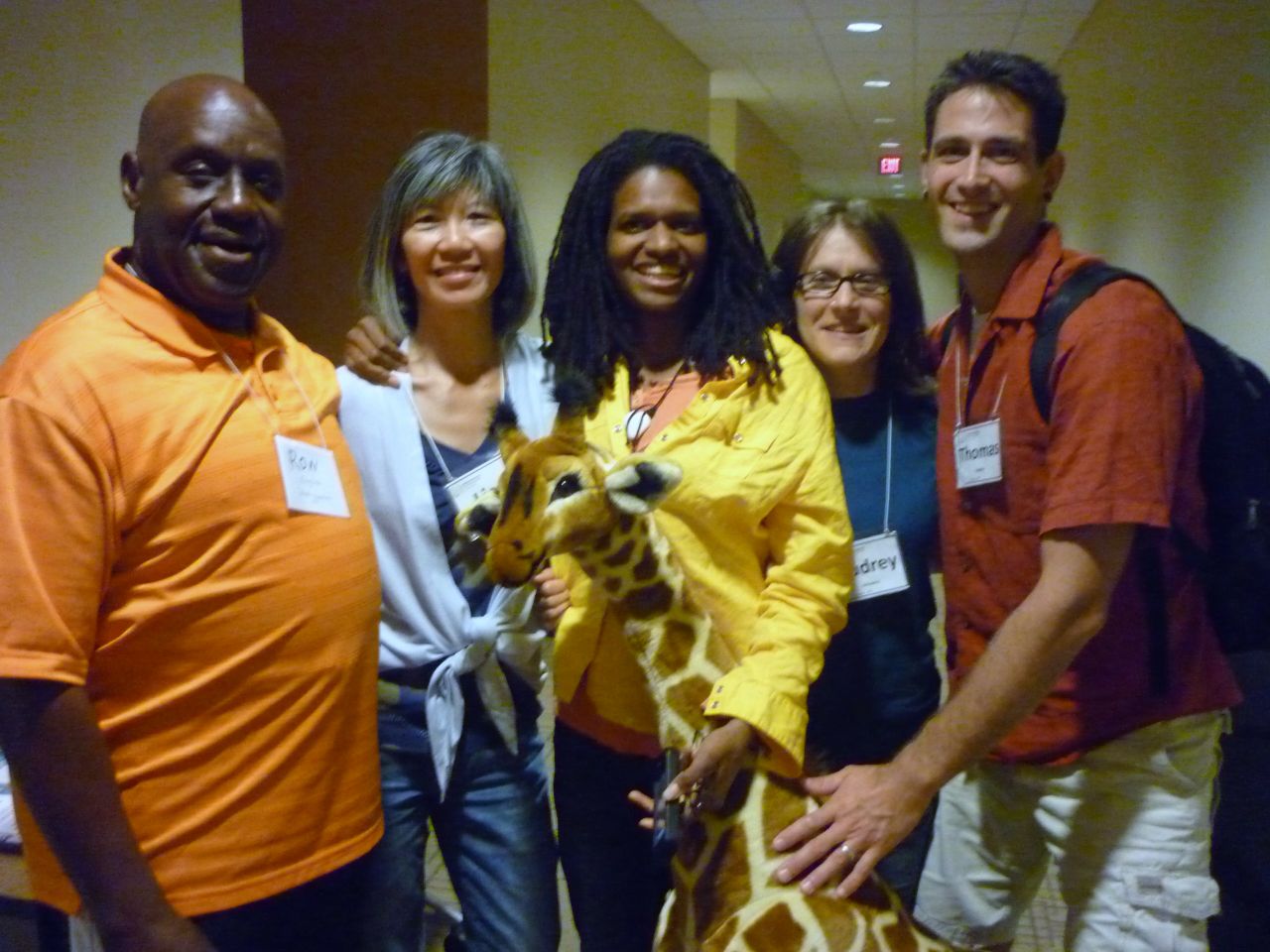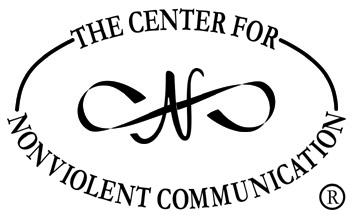What is Compassionate-Nonviolent Communication (NVC)?
Compassionate Communication is both a personal practice that helps us see our common humanity, and a concrete set of skills which help us to live more peacefully. These skills apply to thought, language, and using our power in a way that honors everyone's needs.
Participants from "The Future of Peace Starts Now" retreat.
NVC is a learnable process for creating emotional freedom, self-acceptance, inner peace, and fulfilling relationships. It involves expressing ourselves honestly, listening with empathy, and developing a more compassionate inner relationship.
People around the world are using NVC skills to transform conflict, create harmony in their relationships, and build a world where everyone's needs are honored through compassionate giving, and without the use of coercion or violence.
NVC helps people to:
speak in a way that inspires compassion and understanding
initiate difficult conversations with more ease and confidence
remain centered and peaceful while hearing difficult messages
finding the gift underneath anger so that instead of blasting someone with blame, you transform anger into life-serving energy
shift patterns of thinking that lead to depression, guilt, shame
enliven yourself by expressing and receiving gratitude
translate criticism, judgments and blame into life-serving messages
resolve long-standing conflicts and heal painful relationships
inspire others to change their behavior willingly
How is Compassionate Communication important in our world?
Most of us are hungry for skills that can improve the quality of our relationships, increase our contribution through our work, and deepen our sense of personal empowerment.
NVC helps people connect across differences and see each other's common humanity.
Unfortunately, most of us have been educated from birth to compete, judge, demand and diagnose... and to think and communicate in ways that create distrust and alienation, rather than connection.
At best, these habitual ways we think and speak hinder communication and create misunderstanding and frustration. And still worse, they can cause anger and pain, and may lead to violence, either physical or emotional.
Without wanting to, even people with the best of intentions stimulate needless conflict in their lives.
This practice helps us reach beneath the surface and discover what is alive and vital within us, and how to express what's important to us in a way that generates connection, goodwill and compassion.
NVC helps us to express our feelings and needs so that other peoplecan more easily relate to us, and also helps us make key differentiations between observing and judging, requesting and demanding, and wants and strategies that stimulates compassion from others.
In addition, NVC helps us to distinguish between partnership and domination approaches in our own lives and in the institutions around us, and guides us to recognize our interdependence and create a world where everyone's needs matter.
Learn more about NVC.
Dr. Marshall B. Rosenberg, International peacemaker
Marshall B. Rosenberg, Ph.D. (1934-2015) was the founder of the Center for Nonviolent Communication, an international peacemaking organization. He is the author of Speak Peace in a World of Conflict and the bestselling Nonviolent Communication: A Language of Life that has been translated into more than thirty languages.
Growing up in a turbulent Detroit neighborhood, Dr. Rosenberg developed a keen interest in new forms of communication that would provide peaceful alternatives to the violence he encountered. His interest led to a doctorate in clinical psychology from the University of Wisconsin in 1961, where he studied under Carl Rogers.
His subsequent life experience and study of comparative religion motivated him to develop the Nonviolent Communication (NVC) process.
Dr. Rosenberg first used the NVC process in federally funded school integration projects to provide mediation and communication skills training during the 1960s.
The Center for Nonviolent Communication, which he founded in 1984, now has hundreds of certified NVC trainers and supporters teaching NVC in more than 35 countries around the world.
What set Marshall apart from the thousands of conflict resolution and communication trainers he’s influenced, was his exceptional capacity to role-play interactions with the audience. Whether it was an argument between warring spouses, or warring villages, a dialogue between a victim and perpetrator, or modeling an interaction between a counselor and her patient, these role-plays offered a unique, moving and powerful experience to all who hear them.
Dr. Rosenberg was the 2006 recipient of the Global Village Foundation’s Bridge of Peace Award, and the Association of Unity Churches International 2006 Light of God Expressing Award.
Marshall visited Columbus, Ohio for trainings in March 2006 and January 2007, and these events helped to catalyze the NVC movement in Central Ohio, from which Compassionate Communication Center of Ohio was formed.
With guitar and puppets in hand, a history of traveling to some of the most violent corners of the world, and a spiritual energy that fills a room, Rosenberg was a revolutionary leader whose legacy will carry on far beyond his death.
““I would like to suggest that when our heads are filled with judgments and analyses that others are bad, greedy, irresponsible, lying, cheating, polluting the environment, valuing profit more than life, or behaving in other ways they shouldn’t, very few of them will be interested in our needs. If we want to protect the environment, and we go to a corporate executive with the attitude, “You know, you are really a killer of the planet, you have no right to abuse the land in this way,” we have severely impaired our chances of getting our needs met. It is a rare human being who can maintain focus on our needs when we are expressing them through images of their wrongness.””
Visit a Memorial Page for Marshall on Facebook and see a list of quotes about Nonviolent Communication here.
NVC is a powerful tool for peacefully resolving differences at personal, professional, and political levels. Before his retirement from training in 2011, Dr. Rosenberg led trainings in Sweden, Switzerland, Italy, Germany, Denmark, Belgium, Austria, Malaysia, India, the United Kingdom, the Netherlands, Austria, France, and Canada, and throughout the United States.
He worked with educators, managers, mental health and health care providers, lawyers, military officers, prisoners, police and prison officials, clergy, government officials, and individual families. He also visited war-torn areas and economically disadvantaged countries, offering NVC to promote reconciliation and peaceful resolution of differences. Israel, Palestine, Ireland, Russia, Rwanda, Burundi, Nigeria, Serbia, and Croatia are examples of countries where NVC is being utilized by teams of peace activists.
Source: Some of the information on this page was adapted from the biography at PuddleDancer Press.




